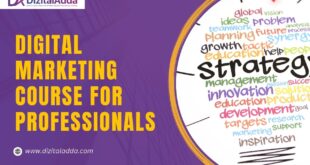Artificial Intelligence (AI) is no longer a futuristic technology; it is reshaping industries across the globe. From improving decision-making processes to streamlining operations, AI offers endless possibilities for businesses. However, achieving these benefits requires more than just adopting AI tools. It demands a well-structured AI strategy framework that aligns with business goals and drives long-term growth.
An AI strategy framework is a comprehensive plan designed to guide the integration of AI technologies into a company’s operations. It ensures that AI efforts are well-coordinated, and purposeful, and result in tangible improvements.
What is an AI Strategy Framework?
An AI strategy framework is a structured approach that helps organizations define and execute their AI goals. It serves as a roadmap, aligning AI initiatives with broader business objectives. The framework guides the implementation of AI technologies while ensuring that resources are used effectively.
A well-designed AI strategy framework includes several key components:
- Clear business goals
- Identification of AI opportunities
- Data management strategies
- Technology stack selection
- Talent acquisition and training
- Metrics for measuring success
By using an AI strategy framework, businesses can better manage AI projects, minimize risks, and maximize the return on their investments in AI technology.
Why Your Business Needs an AI Strategy Framework
As AI continues to revolutionize industries, businesses must embrace it to stay competitive. However, the process of integrating AI into your operations can be complex and resource-intensive. This is where an AI strategy framework becomes invaluable. Here are some key reasons why your business needs one:
1. Aligning AI with Business Goals
One of the primary reasons an AI strategy framework is essential is that it ensures AI initiatives are aligned with your company’s business objectives. Without a clear strategy, AI projects can become fragmented or fail to meet key goals. A strong AI strategy framework helps define your AI vision and ensures that all efforts are focused on achieving your company’s broader goals, such as increased productivity, improved customer satisfaction, or enhanced innovation.
2. Minimizing Risks and Maximizing ROI
AI projects come with a degree of risk. Without a structured approach, it’s easy to waste resources on technology that may not deliver results. An AI strategy framework helps identify potential risks early and allows businesses to implement safeguards to minimize them. Moreover, it enables companies to prioritize AI initiatives that will have the most significant impact, ensuring a higher return on investment (ROI).
3. Optimizing Data Usage
AI relies on data—large volumes of high-quality data. Without proper data management, AI projects can fail to achieve their full potential. A well-established AI strategy framework helps businesses organize and manage their data, ensuring it is clean, accessible, and ready for analysis. Proper data management also ensures compliance with regulations, such as GDPR, reducing the risk of legal complications.
4. Building a Strong AI Team
The success of any AI initiative depends on the skills and expertise of the people behind it. An AI strategy framework helps companies identify the talent they need to succeed. It also guides the process of training existing staff and integrating AI expertise into different business functions. By building a strong AI team, businesses can more effectively execute their AI initiatives.
5. Driving Continuous Improvement
AI is an evolving field. New technologies and techniques are constantly emerging, making it essential for businesses to stay up-to-date with the latest trends. An AI strategy framework includes ongoing assessment and adjustment to ensure continuous improvement. With regular evaluations, businesses can refine their AI strategies, ensuring they remain competitive and innovative.
Key Components of an AI Strategy Framework
To build an effective AI strategy framework, businesses must consider several critical components. Let’s break them down:
1. Define Clear Business Objectives
The first step in building an AI strategy framework is identifying what the business hopes to achieve with AI. Do you want to enhance customer service, improve decision-making, or reduce operational costs? Defining clear objectives will help you focus your AI efforts and measure success. These objectives should be aligned with your overall business strategy to ensure that AI delivers tangible value.
2. Identify AI Opportunities
AI can be applied across a wide range of business functions. To get the most out of AI, businesses need to identify areas where AI can create value. This might include automating routine tasks, improving predictive analytics, or enhancing customer personalization. By understanding the opportunities available, businesses can prioritize AI projects that will drive the most impact.
3. Invest in Data Management
Data is the foundation of AI. Without clean, high-quality data, AI initiatives are likely to fail. A robust AI strategy framework emphasizes the importance of data management, ensuring that businesses have access to the right data in the right format. This includes collecting, organizing, and analyzing data, as well as implementing strong data governance practices.
4. Choose the Right AI Technologies
The AI technology landscape is vast and rapidly evolving. Selecting the right tools and platforms is crucial to the success of any AI project. Businesses should choose AI technologies that align with their needs, whether it’s machine learning for data analysis, natural language processing for customer support, or robotic process automation for operational tasks.
5. Build AI Expertise
Implementing AI successfully requires specialized skills. As part of your AI strategy framework, it’s important to identify the talent needed to manage AI projects effectively. This includes hiring AI specialists, data scientists, and engineers, as well as providing training and development opportunities for existing employees.
6. Measure and Monitor Progress
An AI strategy framework isn’t a one-time project; it’s an ongoing process. Businesses need to track the progress of their AI initiatives regularly to ensure they are meeting their objectives. By establishing key performance indicators (KPIs) and using data to measure success, companies can fine-tune their strategies and ensure continuous improvement.
How to Implement an AI Strategy Framework in Your Organization
Implementing an AI strategy framework requires careful planning and execution. Here’s a step-by-step guide to help you integrate AI into your organization:
Step 1: Assess Readiness
Before diving into AI, assess your organization’s readiness. Do you have the necessary data infrastructure? Are your employees equipped with the right skills? Understanding your current capabilities will help you determine the scope of your AI strategy.
Step 2: Define Objectives and Prioritize Initiatives
Work with key stakeholders to define your AI objectives. What are your most pressing business needs, and where can AI create value? Prioritize your initiatives based on impact and feasibility.
Step 3: Build a Cross-Functional Team
AI is not just an IT initiative—it impacts multiple departments. Build a cross-functional team that includes representatives from various business areas, such as marketing, operations, and HR. This will ensure that AI is integrated seamlessly across the organization.
Step 4: Develop and Deploy AI Solutions
Once you have a strategy in place, start developing and deploying AI solutions. This might include selecting AI tools, hiring talent, and implementing processes to support AI initiatives. Pilot smaller projects first, and scale as you see results.
Step 5: Monitor, Refine, and Scale
Monitor the progress of your AI projects closely. Use data and feedback to refine your strategy. As you see positive results, expand AI initiatives to other areas of your business.
The Future of AI Strategy Frameworks
As AI continues to evolve, so too will the strategies that businesses use to implement it. AI will become more integrated into everyday business operations, driving efficiency, innovation, and growth. The future of AI strategy frameworks will likely involve deeper collaboration between humans and machines, more advanced machine learning algorithms, and even greater emphasis on ethics and data privacy.
Conclusion
An AI strategy framework is essential for businesses that want to thrive in the age of artificial intelligence. By aligning AI initiatives with business goals, optimizing data usage, and building a skilled AI team, companies can unlock the full potential of AI. Implementing a well-structured AI strategy framework helps businesses stay competitive, drive growth, and continuously innovate.
Ready to implement an AI strategy framework? Start building your strategy today to drive innovation, improve efficiency, and achieve your business goals with AI.
 Our Gateway to Insightful Blogging Exploring Ideas, Sharing Knowledge, Inspiring Minds
Our Gateway to Insightful Blogging Exploring Ideas, Sharing Knowledge, Inspiring Minds



